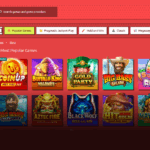Work Environment
The insurance industry operates within a fast-paced and competitive environment, demanding high levels of efficiency and productivity. The sales-oriented nature of the role required constant outreach and follow-ups, often involving extended work hours and unpredictable schedules.
One of the challenges encountered was the constant pressure to meet sales targets. The commission-based compensation structure placed a heavy emphasis on performance, leading to a high-stress work environment. Additionally, the industry’s regulatory landscape required continuous education and compliance, adding to the workload.
Work-Life Balance
Striking a healthy work-life balance proved challenging as the job often demanded attention beyond regular hours. Client meetings, phone calls, and paperwork extended into evenings and weekends, making it difficult to disconnect and maintain a personal life.
Career Advancement
As an insurance agent, the opportunities for career growth may vary depending on the agency and the individual’s performance. While some agencies provide structured career paths with defined advancement opportunities, others may have more limited growth potential.
In agencies with established career paths, insurance agents may have the chance to advance to roles such as sales manager, branch manager, or agency owner. These positions typically involve increased responsibilities and higher earning potential. However, the availability of these opportunities and the speed of advancement may depend on factors such as agency size, competition, and the individual’s performance and qualifications.
Limitations and Lack of Advancement
In some cases, insurance agents may face limitations in their career advancement due to a lack of formal training programs or clear promotion criteria. This can make it challenging to progress beyond entry-level positions or to develop specialized skills and knowledge.
Additionally, the insurance industry can be competitive, and advancement may depend on factors such as seniority, personal connections, or the ability to generate a high volume of sales. This can create a barrier for agents who are newer to the industry or who may not have a strong network or sales skills.
Personal Experiences
My personal experience as an insurance agent involved a combination of opportunities and limitations. While I was able to develop a strong client base and increase my sales performance over time, I found that advancement opportunities were limited within my agency.
Despite consistently exceeding sales targets and receiving positive feedback from clients, I was not offered a promotion or any formal training to develop my management skills. This led me to explore other career options that offered a clearer path for growth and professional development.
Compensation and Benefits
The compensation structure for insurance agents typically comprises a base salary and commission-based incentives. The base salary often falls within a predetermined range and serves as a stable foundation for earnings. However, the commission structure can vary significantly depending on the insurance company, product portfolio, and individual performance.
Financial constraints or lack of satisfaction can arise when the base salary is not competitive or the commission structure is perceived as inadequate. Insurance agents may face challenges in meeting their financial goals or providing for their families if the compensation package does not align with their expectations or industry standards.
Incentives, Bonuses, and Commission Structure
Incentives, bonuses, and commission structures play a crucial role in motivating insurance agents and rewarding their performance. These incentives can take various forms, such as sales targets, customer acquisition goals, or cross-selling initiatives. Achieving these targets can result in additional earnings and recognition.
However, if the incentives are not structured effectively or are not aligned with the agent’s skill set and market conditions, they may fail to provide the desired motivation or financial rewards. Agents may experience frustration or discouragement if the incentives are unrealistic or unattainable, leading to decreased productivity and a negative impact on earnings.
Company Culture
The company’s culture and values significantly influenced my experience as an insurance agent. The organization emphasized a customer-centric approach, prioritizing client satisfaction and fostering a positive work environment.
Initially, I found this culture aligned well with my personal beliefs. I am passionate about helping others and strive to provide excellent customer service. However, over time, I realized that the company’s focus on sales targets sometimes overshadowed the genuine care for clients.
Misalignment of Personal Values
As I became more experienced, I noticed a growing disconnect between my values and the company’s sales-driven culture. I felt pressured to meet quotas and close deals, even if it meant compromising the clients’ best interests. This misalignment created a sense of unease and ultimately contributed to my decision to leave.
Customer Interactions
As an insurance agent, I had the opportunity to interact with a wide range of customers, each with unique needs and concerns. While many interactions were positive and rewarding, there were also challenges and difficulties that tested my patience and communication skills.
One of the most challenging aspects of customer interactions was dealing with frustrated or angry clients. These situations often arose when customers felt that their claims were being unfairly denied or that they were not receiving the level of service they expected. It was crucial to remain calm and empathetic, while also clearly explaining the company’s policies and procedures. In some cases, I was able to resolve the issue to the customer’s satisfaction, but there were also times when it was simply not possible to meet their demands.
Handling Complex Policies
Another challenge I faced was explaining complex insurance policies to customers. Many insurance policies are written in technical language that can be difficult for the average person to understand. It was my responsibility to break down the jargon and present the information in a clear and concise manner. This required patience, good communication skills, and the ability to tailor my explanations to the individual customer’s level of understanding.
Personal Values and Goals

Personal values and goals play a significant role in shaping career decisions. For me, it was a combination of a shift in priorities and a realization that my values were no longer aligned with the insurance industry.
As my family grew, I began to value flexibility and a work-life balance more. The demanding and unpredictable nature of insurance sales made it difficult to prioritize my personal life.
Impact of Values on Career Choices
My decision to leave the insurance industry was not made lightly. It was a gradual process that involved introspection and a reassessment of my priorities. Ultimately, I realized that my values were not aligned with the long hours, high-pressure sales environment, and limited opportunities for growth within the insurance industry.







